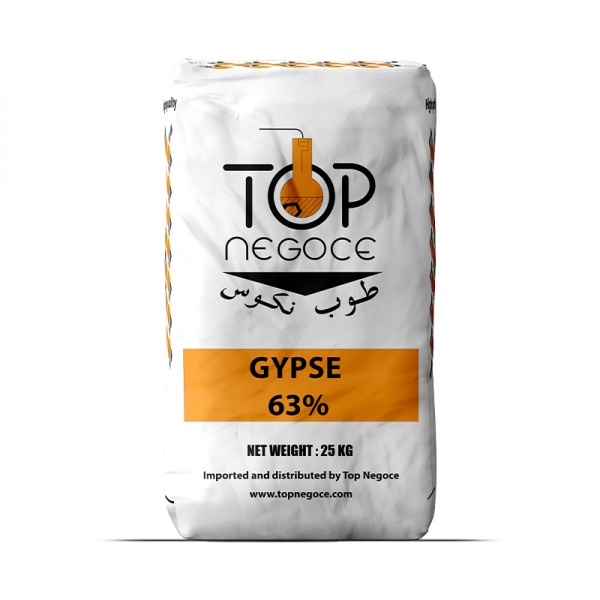


No products in the cart.


Gypsum 63% appears as a white, crystalline, and odorless powder, widely used in construction, agriculture, and manufacturing industries. It is non-combustible, but can decompose at high temperatures. It is slightly soluble in water, forming a paste when mixed, which gradually hardens to provide significant mechanical strength.
This mineral primarily consists of calcium sulfate dihydrate (CaSO₄·2H₂O), which, when heated, transforms into plaster by losing its crystallized water.
Construction Industry:
Agricultural Sector:
Food Industry:
Cosmetic and Pharmaceutical Products:
Data sheet